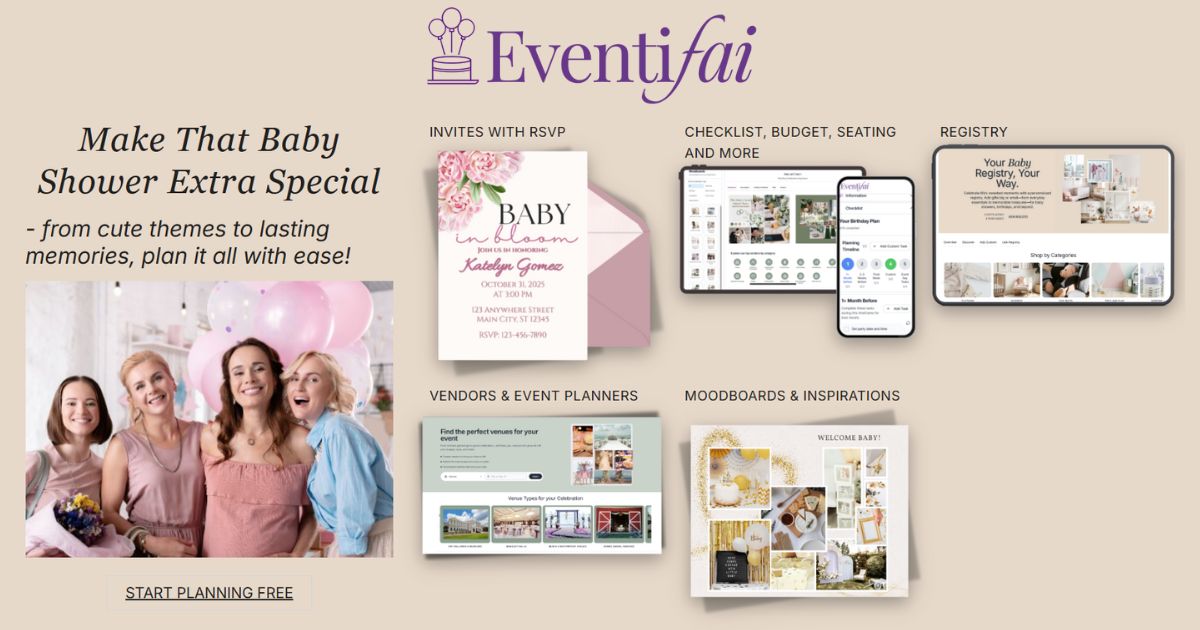
Understanding Who Hosts a Baby Shower: Modern Etiquette Explained
Baby showers are joyous occasions that celebrate the upcoming arrival of a new baby. Traditionally, these events are a way for friends and family to shower the expectant mother with love, support, and gifts. However, when it comes to organizing a baby shower, one common question arises: who hosts a baby shower?
In the past, there were strict rules regarding baby shower etiquette, but modern customs have evolved considerably. Understanding these changes will help first-time organizers plan a memorable event that respects both tradition and current trends. This comprehensive guide explores the details of baby shower hosting, modern etiquette, and practical tips for first-time planners.
Who Typically Hosts a Baby Shower?
Traditionally, the baby shower is hosted by a close friend or family member of the expectant mother, often a female aunt, sister, or friend. The rationale behind this approach is to allow the mother-to-be to be the guest of honor and avoid any obligation or financial burden.
However, modern baby shower hosting arrangements are more flexible. Here are the common hosts:
1. Close Friends or Family Members
- Most common hosts, especially those with a close relationship to the mother-to-be.
- They usually organize the venue, invite guests, and coordinate gifts or games.
- Hosting is typically considered a labor of love, not an obligation.
2. Co-Workers or Office Groups
- Many workplaces now arrange baby showers for employees, supporting work culture and camaraderie.
- Office-hosted showers may be smaller and simpler but equally meaningful.
3. The Mother-to-Be Herself
- Increasingly, expectant mothers choose to host their own showers, especially if friends or family are unavailable or far away.
- This approach allows full control over themes, guest lists, and timing.
- When self-hosting, it's customary to keep things low-key without gift expectations.
4. Male Hosts
- Breaking tradition, husbands, brothers, or male friends sometimes host baby showers, especially in co-ed or modern mixed-gender celebrations.
- Male hosts can bring unique ideas and perspectives to the planning process.
Modern Baby Shower Etiquette: What Has Changed?
With changing family structures and social norms, baby shower etiquette has evolved. Understanding these modern trends ensures the event is enjoyable, appropriate, and respectful.
Flexible Hosting
As noted, the strict tradition that the shower must be hosted by a female friend or relative has relaxed. Nowadays, anyone who wishes to celebrate and has the capacity to organize can host a shower.
Timing and Invitations
- Baby showers usually occur during the late second or early third trimester (around 28 to 32 weeks).
- Invitations can be sent via traditional mail, email, or digital invitation platforms.
- Co-ed or joint showers for mom and dad are gaining popularity.
Gifting Guidelines
The focus remains on gifts that help the new parents. Gift registries are typically set up to guide attendees, but it’s now common to accept handmade or non-traditional gifts. When hosting, it’s courteous to provide registry information in the invitation or on the event page.
Inclusivity and Themes
Modern celebrations often emphasize inclusivity, inviting a diverse mix of family and friends. Themes can be traditional, playful, or elegant, reflecting the personalities of the parents-to-be.
Tips for First-Time Baby Shower Organizers
Organizing a baby shower for the first time can feel overwhelming. Here are essential tips to ensure your event goes smoothly, remains within budget, and delights the guests of honor.
1. Clarify Roles and Expectations Early
- Confirm hosting duties and who will cover expenses upfront to avoid last-minute confusion.
- Communicate with key family members or friends about guest lists and preferences.
2. Choose a Suitable Date and Location
- Select a date that works well for the expectant mother, ideally during the late second trimester.
- Consider accessibility for guests – home, community centers, or restaurant private rooms are popular venues.
3. Plan a Budget
- Set a realistic budget covering venue, food, decorations, invitations, and favors.
- Communicate with co-hosts or contributors regarding shared expenses.
4. Create Invitations and Manage RSVPs
- Use digital invitation platforms like Evite or Paperless Post for easy RSVP tracking.
- Include all necessary details—venue, time, dress code, registry information, and special instructions.
5. Select a Meaningful Theme
- Choose a theme that reflects the parents’ interests or nursery décor.
- Popular themes include classic pastels, animals, storybook characters, or modern geometric designs.
6. Plan Engaging Activities
- Include games, gift-opening sessions, or crafting activities tailored to the crowd.
- Keep the focus on fun and interaction, avoiding overly competitive or embarrassing games.
7. Organize Food and Drinks Thoughtfully
- Consider dietary preferences and restrictions of the mother-to-be and guests.
- Light refreshments, finger foods, mocktails, and themed cakes are popular choices.
8. Prepare for Gift Management
- Designate an area to display gifts and assign someone to note who gave each gift for thank-you notes.
- Consider a gift-opening schedule to keep the event flowing smoothly.
9. Personalize Decorations
- Customized banners, balloons, and table settings enhance the ambiance.
- Incorporate meaningful elements such as ultrasound images or family photos.
10. Have a Backup Plan
- If hosting outdoors or in a venue with uncertainties, ensure there is an alternative plan in case of weather or technical issues.
Common Questions About Hosting a Baby Shower
Is it okay for the father-to-be to host the shower?
Absolutely. While traditionally a female friend or relative hosts, it’s increasingly common and accepted for the father or male friends to organize the event, especially in co-ed showers.
What if the mother-to-be doesn’t want a shower?
Respect her wishes. Some expectant mothers prefer small gatherings, no gifts, or no celebration at all. If hosting is desired, consult with her to tailor the event to her comfort level.
Should baby showers be surprise parties?
While surprise showers can be delightful, they require careful planning and coordination. It’s usually better to involve the mother-to-be in some way to ensure the date and format work for her.
How far in advance should I start planning?
Begin planning at least 6–8 weeks before the desired shower date. This gives ample time to secure venues, send invitations, and organize supplies.
Conclusion
Hosting a baby shower is a wonderful opportunity to celebrate the impending arrival of a new family member. Modern etiquette embraces flexibility in who hosts, how the event is organized, and how guests participate.
Whether you are a close family member, friend, co-worker, or even the expectant mother yourself, planning a baby shower involves thoughtful preparation to make the event memorable and enjoyable for everyone involved. By following current trends and etiquette, first-time organizers can confidently create a joyous and meaningful celebration.
